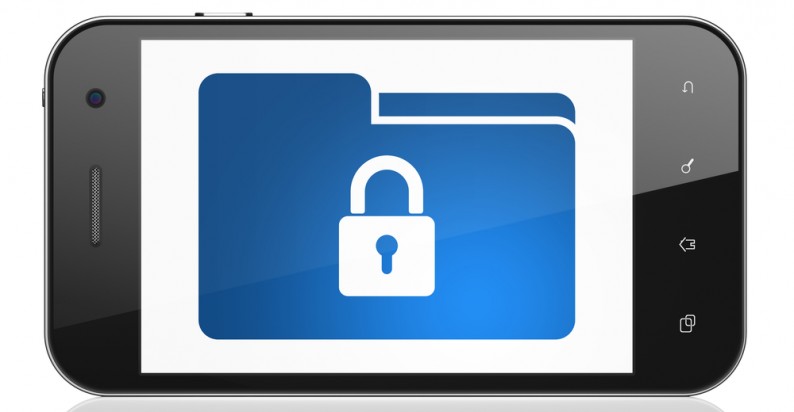Smartphones and tablets are powerful productivity tools. Your small business may even count on them to help your employees stay connected and productive away from the office. Some businesses issue a company-owned smartphone to each employee, but employees might be better served by a bring-your-own-device (BYOD) policy. BYOD isn’t just cheaper and easier than the alternative; it can also make for happier, more productive employees.
But using personal smartphones for business can be risky. If you’re not careful, adopting a BYOD policy could compromise sensitive company data. Fortunately, there are easy steps you can take to mitigate security risks. Here are five simple tools your company can use to keep its data safe and secure.
1. For email…
Office 365 (all mobile platforms)
Any old webmail service will do for personal use, but when running a business it pays to invest in a secure, business-class email service — especially if your company operates under a BYOD policy. But business-class email can be pricey, especially for a small business on a limited budget.
A subscription to Microsoft Office 365 includes secure email for your employees, with ActiveSync support for every major mobile platform. It’s one of the only cloud-based platforms, alongside Google Apps for Business, that meets the minimum security-standards for usage by U.S. Federal Government agencies. It’s affordable, too, at about $4 per employee per month. As a bonus, users gain access to the full Office 365 suite, which opens up secure, cloud-based syncing for your Office documents, calendar and more.
2. For quick communication…
BlackBerry Messenger (Android, iOS, BlackBerry)
Sometimes email is just too slow and fragmented. For quick communication, instant messaging is more convenient, and more secure than SMS text messaging — at least if you have the right app. Unlike SMS messaging, which you pay for as part of your cellphone plan, text messaging services are free, Web-based apps.
BlackBerry Messenger (BBM) is a good pick for business users who need a quick, convenient way to communicate privately. The app, trusted by governments and financial institutions, features best-in-class security. It uses a PIN-to-PIN messaging system, which means that all messages are encrypted during transmissions and can only be decrypted by a private key on the device owned by the intended receiver. Messages pass through a firewall before hitting BlackBerry’s servers, meaning not even BlackBerry employees can read the messages. Individual businesses can also obtain a unique encryption key for added security.
3. For antivirus…
Avast (Android only)
Google designed the Android operating system to be open and flexible. That design philosophy is a big draw for power users, but it ultimately renders Android less secure than other mobile operating systems. Side-loading an unapproved application, a process that involves downloading and installing an app from a source other than the manufacturer’s official app store, is virtually impossible on iOS and Windows phone devices — at least without a concerted effort. Meanwhile, it’s trivially easy to side-load an unapproved app on an Android phone. Google is also more relaxed about which apps it allows to appear in the Google Play app store, and the fragmented Android landscape makes it trickier to patch vulnerabilities.
Those are serious security risks for small businesses practicing BYOD; malicious software can quickly cause sensitive data to become compromised or lost. Ultimately, Android is the only mobile operating system that calls for serious consideration of dedicated anti-virus and anti-malware software. If you run a BYOD office, consider mandating the installation of such software on employees’ Android devices.
Avast,one of the best security suites for Windows PCs, offers a version of its software for Android. Better yet, Avast is free; no need to carve out a portion of your business’ budget for mobile security software. It’s not the only Android anti-malware solution, but it is a good one.
4. For basic security…
Lock screens (all platforms)
This one is a bit of a no-brainer, but it’s so effective and easy to implement that it warrants a mention. Every major mobile operating system lets users secure a device with a password-protected lock screen. Many smartphone users set up lock screens to keep their personal data and messages safe from prying eyes, but it’s an especially important tool for those who use their devices for business. If you’re a small business owner with a BYOD policy, ask your employees to keep their devices locked down with a simple password or PIN number.
Inputting a password every time you unlock your phone can be a bit of a nuisance, but it’s an important first step to prevent data loss, particularly if a device is lost. Even if an unlocked device is misplaced, your business still has options. There are numerous apps that allow users to lock a smartphone remotely, or even wipe its memory. But when personal smartphones become business phones, it’s best to take a proactive approach and keep these devices locked in the first place.
Read more: 5 Tools to Secure a ‘Bring-Your-Own-Device’ Workplace













Leave A Comment